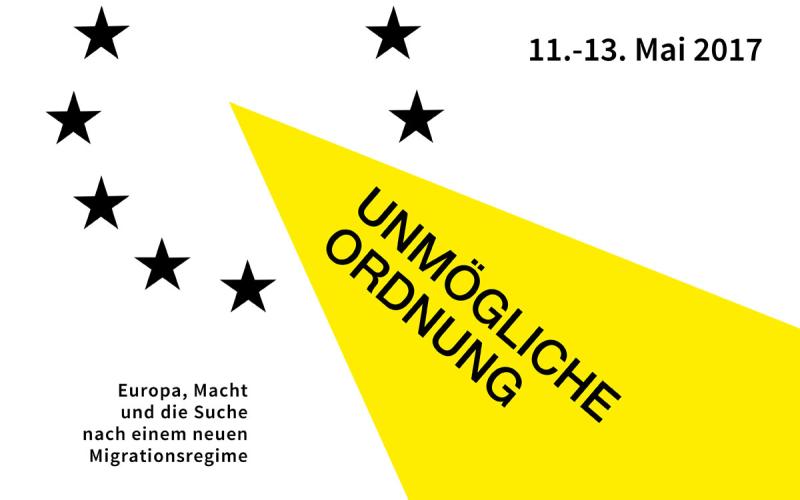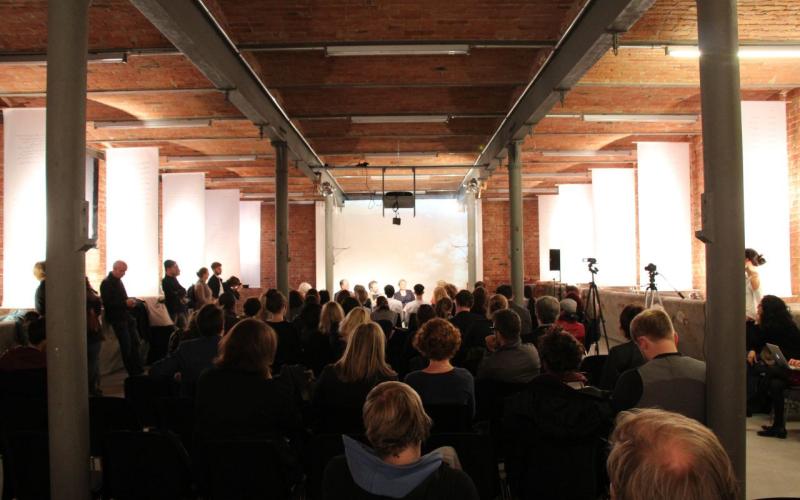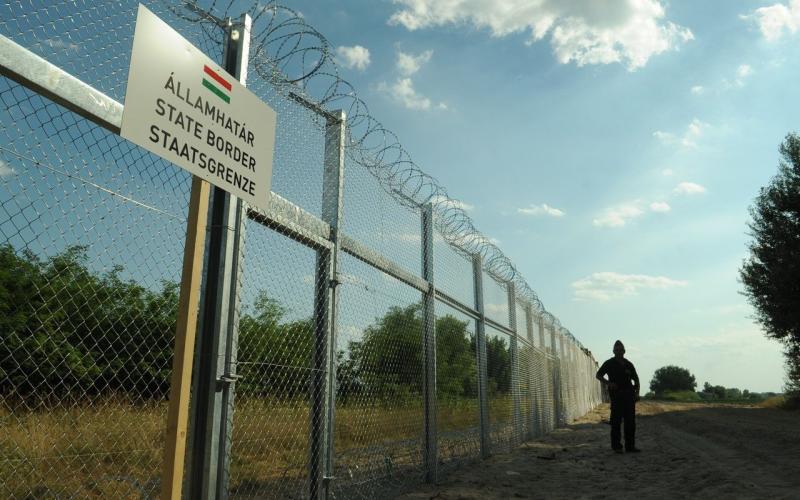This blog entry reflects on the keynote made by Prof. Peter Gatrell which opened the international conference “The Impossible Order” at the Berlin Wall Memorial in May 2017, focusing on migration and history. Peter Gatrell's main points of interest were the perception of the refugee as a category by both political and mass media outlets as well as the responsibility of historians to analyze the interdependent relationship between refugees, society and government. Prof. Gatrell coined this phenomenon “Refugeedom”.
It is an almost self-evident to hold a conference about “Europe, Power and the Search for a New Migration Regime” at the Berlin Wall Memorial. After all, there is no monument in Germany, maybe in whole Europe, that symbolizes governmental migration restriction with all the dramatic social consequences as tangibly as the Berlin Wall. One could truly say it’s one of the world most famous symbols of “Refugeedom” - a term that was coined, not by accident, by the conference’s keynote presenter.
The person in question, Prof. Peter Gatrell, teaches History at the University of Manchester where he is also affiliated to the Humanitarian and Conflict Response Institute. As the author of a trilogy of books on refugee history, including “A Whole Empire Walking: Refugees in Russia during World War I” (1999) and “The Making of the Modern Refugee” (2013), he is without doubt one of the leading experts in the field of migration studies. He is grounded in both political and social research and addressed the idea of a refugee as a distinct category of mobility and society. He is editing a new collective volume on the European refugee crisis during the First World War which will appear 1 June 2017.
The concept of “Refugeedom” and the interdependent relationship between refugees and state
As Prof. Gatrell approached the stage he stressed that many historians nowadays still neglect the active historical role ot refugees, which they played above all in shaping the 20th century. But where should we “put” refugees in the historical cultural matrix, he asked?
Of course, as Prof. Gatrell reminded the audience, refugees are not the product of the modern era but so is the distinct idea of refugee protection, categorization and politics. He captures this nexus on the term “Refugeedom” which grounds in a historical pretext: In 1915 during the First World War, the Russian public had become familiar with refugees and the newspapers shaped the term bezhenstvo which Gatrell translated to “Refugeedom”. In contrast to classic understandings of terms like “refugee regime”, this concept involves administrative practices, legal norms, social relations and refugees’ experiences and how these have been represented in cultural terms as well as in the mass media. In other words, “Refugeedom” stresses the interdependent relationship between refugees, society and state: „States make refugees, but refugees also make states“. Gatrell continued to say that “history is needed in order to understand this matrix”.
“Refugees are not political products”
In order to establish a sense of historical analogies, Gatrell first presented the infamous photograph of the deceased Alan Kurdi, a young three-year-old Syrian child who drowned on the shores of Turkey. This image stirred up a wave of empathy in late 2015 and became a symbol of the so-called “refugee crisis”. Gatrell pointed out that this representation of refugee related tragedy was not new and put said image in a context of earlier photographs, especially one of Latvian refugees in 1915.
Gatrell argued that these images might be seen as a helpful format of shock yet they rather inspire alienation than identification. From this said objectification of refugees neglects refugees' humanity and degrades them to alien subjects. In Gatrell’s eyes, there should be a political reduction. As he put it, “We must not speak about the refugees but rather the refugee, as an individual”. In short, although refugees can be a political and economic tool for the country of migration as well as country of origin, they are primarily individuals who engage in historical events.
Moreover, Gatrell continues to say that as long as there were a “hidden hierarchy” emphasizing certain political shifts over others discourse enforces the negligence of those shifts at the bottom of the pyramid. In his point of view, especially historians could contribute by adding value to different and similar occurrences in order to expand the perspective of the public (such as the conflicts that occur in Somalia, Tibet, Palestine, Afghanistan, etc.).
Despite the constraint of time, Prof. Gatrell raised valuable points as well as crucial questions about “Refugeedom” and migration which corresponded with the entire conference as well as the personal language of the participants. His presentation was a reminder that even an excess of empathy could result in alienation. Perhaps the best that we could do is to see refugees as different equals and not as aliens to society.
After the talk the audience addressed Gatrell with a round of savvy political questions. Finally a member of the audience raised the natural question - “Historically, where and when would you consider the integration between refugees and natives as a success?” After an initial shrug Prof. Gatrell hesitated. He continued slowly by saying that “Integration is quite the loaded term, isn’t it? Integration of who and on what terms?” Maybe, he concluded, the best that we could hope for is living a livable life, to live and let live.
Zitation
Ido Nahari, Jakob Saß, „States make refugees, but refugees also make states“: Peter Gatrell on the „Making of the Modern Refugee”. Key Note Report , in: Zeitgeschichte-online, , URL: https://zeitgeschichte-online.de/themen/states-make-refugees-refugees-also-make-states-peter-gatrell-making-modern-refugee



